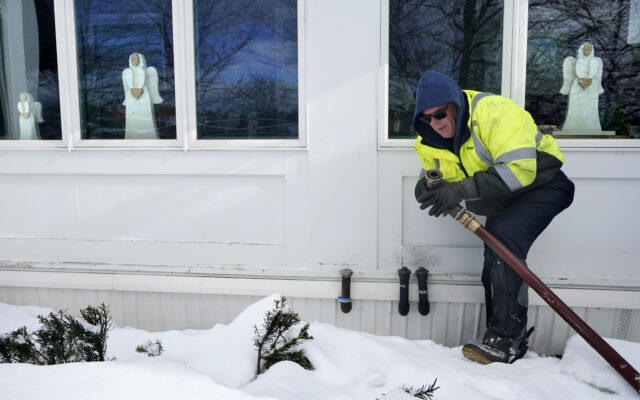
Winter heating aid may be hard to get in Maine. Here’s what you can do instead
By Zara Norman, Bangor Daily News Staff
By Zara Norman, Bangor Daily News Staff
The heating aid program that helps many Mainers heat their homes opened up in July, but it is expected to run out before winter’s end.
The federal Low-Income Home Energy Assistance Program typically helps more than 50,000 low-income Maine households each year. Homes with seniors, young children and those with disabilities are prioritized. The state housing authority subcontracts with local agencies to mete out benefits that have ranged between $500 and $700 over the last two years.
The program took new applications through March of last year, although those who applied through the end of May were put on a waitlist and eventually got paid. An increase in applications as well as high fuel prices and funding returning to pre-pandemic levels is leading to warnings that not everyone who’s eligible will receive benefits this year.
“I do believe that that’s what is going to happen,†Lynn Lugdon, a program manager with Penquis, the Bangor-area CAP agency, said. “We definitely have a backlog.â€
If you’re eligible, it’s still worth putting an application in for this assistance program, she advised. But the issues are causing state and local officials to direct Mainers to a patchwork of public and volunteer programs instead. If you don’t meet the income guidelines or worry your application won’t be processed in time, here are some other options.
Get a heat pump and a rebate
Efficiency Maine administers a heat pump rebate program for all Mainers who want to use heat pumps as their primary heating source. The rebate you receive is dependent on income, but Efficiency Maine will at least rebate 40 percent of your project cost, and lists installers around the state to connect with.
“Some of the top performing installers are a bit busier than others, but we’re not seeing a huge backlog where someone would not be serviced,†Gifford said.
A new, $36 million investment in this program, particularly targeted at low-income mobile homeowners and tenants in affordable housing complexes, was also announced this week. Those rebates are expected to become available beginning this month.
Home repair programs
For low-income homeowners, MaineHousing administers a home repair program that covers energy efficiency upgrades and the replacement of drafty windows and doors. Habitat for Humanity also administers one of these programs to help seniors age in place.
Efficiency Maine also runs an insulation rebate program and a multifamily weatherization program. It’s worth checking in with your local CAP agency to see if they, like Downeast Community Partners, offer assistance with home or heating system repairs.
Do-it-yourself measures like using shrink wrap around drafty windows, or using spray foam in drafty areas, can also help make your home more heat efficient, Lugdon said. WindowDressers relies on volunteers to install low-cost insulating window inserts in homes around New England.
Gov. Janet Mills advocated for more of a focus on weatherizing and better insulating homes as the state’s congressional delegation pushes for more funding for heating assistance.
“Let’s tighten up these homes, whether they’re 200 years old or two years old, Mills said. “Make them more efficient and cost less.â€
Turn to your town
Since the federal program is stressed, towns are increasingly leaning on their own resources to take care of each other. Low-income people may be able to access help through the state and local General Assistance program. There are also less formal ways of getting aid from religious and community groups, food pantries and nonprofits.
“It’s always worth calling the town office,†Anne Schroth, executive director of Healthy Peninsula in Blue Hill, said.
There may be groups operating locally that you don’t know about offhand. Last year, the York Community Service Association raised more than $20,000 at an event to help people in the southern Maine town with heating costs, Janie Sweeney, the group’s family service manager, said. With aid running out, the association aims to raise more this year.
“The neighbor-helping-neighbor model is so important as these safety net programs struggle with funding,†Sweeney said. “We really need to worry about taking care of each other.â€